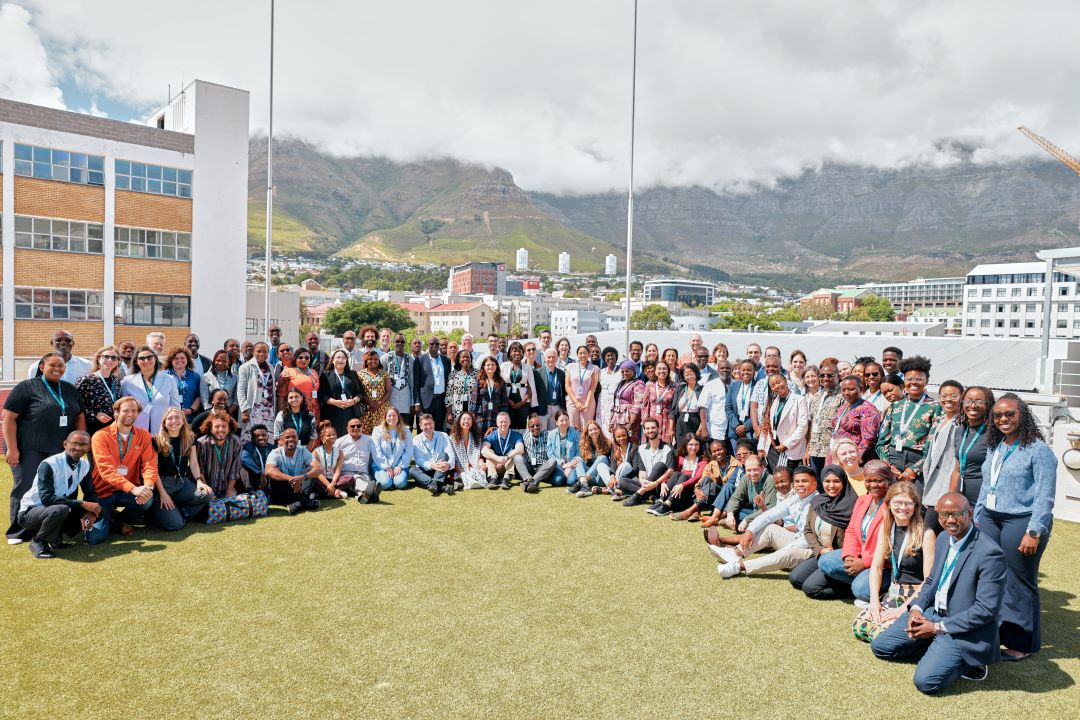27 November 2024
Cape Town hosts landmark meeting as cities across Africa and Europe commit to transforming urban food systems




From 25 November 2024 to 29 November 2024, ICLEI Africa, in collaboration with the City of Cape Town, will host government leaders, researchers, and youth ambassadors from 20 African and European cities. These leaders, along with representatives from the AfriFOODlinks project’s 28 partner organisations, will gather in Cape Town in a concerted effort to draw attention to the urban dimensions of hunger, malnutrition and obesity in Africa. This is one of a few gatherings of its kind in which city officials from across the African continent are coming together to share their solutions to these challenges at city level.
Research from the United Nations High Level Panel of Experts on Food Security and Nutrition revealed earlier this year that 1,7 billion of the world’s 2,2 billion people facing moderate or severe food insecurity live in urban and peri‐urban areas, with over half a billion residing in African cities. These numbers underscore the urgent need for action at the city level, where the impacts of food insecurity are deeply felt.
‘What makes AfriFOODlinks unique is that it is addressing this challenge, not by focussing on where food comes from, but by explicitly improving the design and governance of the urban food environments that shape the food choices, and therefore the nutritional outcomes, of city residents,’ says Dr. Luke Metelerkamp, ICLEI Africa, Coordinator of AfriFOODlinks.
‘This gathering represents an unprecedented commitment from cities across Africa and Europe to tackle urban food challenges head-on, driving locally-led solutions that address the realities of food insecurity in urban communities,’ said Kobie Brand, ICLEI’s Deputy Secretary General and Regional Director of ICLEI Africa, the organisation responsible for coordinating the project.
‘Cities are hubs of innovation and solutions, they are drivers of change, they are where implementation happens at ground level.’
Cape Town Mayor, Geordin Hill-Lewis highlighted the pivotal role which the informal economy plays in Cape Town’s food system, noting that ‘through the AfrifoodLinks pilots and collaboration, the City of Cape Town is committed to improving trading conditions in food markets by providing the necessary infrastructure to empower the informal food sector to do business in a healthy, safe, and dignified manner and growing the local economy. This is critical to ensure that we build a food-resilient city that can withstand any adversities in regards to the provision of nutritious and affordable food to sustain livelihoods.’
Alderman Grant Twigg, the City’s Mayoral Committee Member for Urban Waste Management said, ‘The AfriFOODLinks project is a testament to the power of collaboration and the ingenuity of cities in addressing critical food system challenges. Cities are where the challenges of food security, nutrition, waste, and climate change converge, but they are also where innovative solutions can emerge. Within the context of rapid urbanisation, African cities must take the lead in rethinking how food systems work, starting from the local level.’
‘Our participation in AfriFOODLinks reflects our belief in local solutions, innovative partnerships, and knowledge-sharing across cities,’ said Alderman Twigg.
The meeting will also feature voices from other African city leaders who share Cape Town’s vision.
‘In Lusaka, we know that sustainable food systems are the backbone of healthy and resilient communities. Through AfriFOODlinks, we hope to better integrate food into our city governance structures,’ said Mayor Chilando Chitangala.
Highlighting youth and intergenerational dialogue
For the first time, AfriFOODlinks’ 20 youth ambassadors will join the consortium meeting, bringing their perspectives to discussions, and strengthening a global youth-driven network around food. A highlight of the week will be an intergenerational panel, where youth representatives and city officials co-develop a statement reflecting a shared vision for their cities’ food systems, reinforcing the project’s commitment to inclusive governance and sustainable, long-term solutions.
Mayor Maxmillian Iranqhe, Mayor of Arusha notes, ‘With Africa’s population being so young, the perspectives and ideas of our youth are crucial in shaping the future. AfriFOODlinks provides a platform to elevate these voices.’

A values-driven, collaborative approach
Throughout the week, participants will engage in workshops, presentations and site visits around Cape Town, exploring the city’s diverse food landscape. This exchange highlights the collaborative spirit of AfriFOODlinks, which seeks to build strong, trust-based relationships across African cities.
As County Governor of Kisumu, the Professor Anyang’ Nyong’o, who hosted the first consortium meeting, shared, ‘The future of Africa is urban, and we need to think critically about how to feed our growing populations. We must look at the whole food value chain and the links between urban and rural.’
Over the next two years, AfriFOODlinks, funded by the European Union, will bring these commitments to life by implementing more than 20 urban food system interventions across African cities, piloting innovative, research-driven approaches tailored to local contexts. The project will also support the growth of a network of youth leaders, and incubate 250 food entrepreneurs, fostering a new generation dedicated to sustainable food solutions.

About AfriFOODlinks
AfriFOODlinks is a four-year initiative funded by the European Union and coordinated by ICLEI Africa. Uniting 28 partners across Africa and Europe, the project champions bold transformations in urban food systems in more than 65 cities. By fostering inclusive, multi-actor governance, AfriFOODlinks equips public officials with the tools to shape resilient food systems through knowledge-sharing and locally tailored solutions. The project accelerates the growth of innovative, women and youth-led agri-food businesses and has launched a youth ambassador programme that connects young leaders with city decision-makers—creating a collaborative path toward nourishing, sustainable urban food systems.


